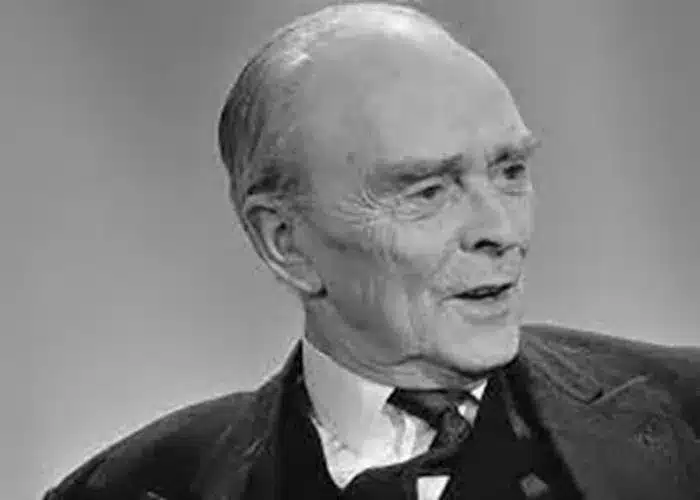Sean MacBride (26 January 1904 – 15 January 1988), was an Irish statesman. In 1974, he won the Nobel Peace Prize for his human rights activism.
Life and Career
He was born on 26 January 1904, in Paris, France. He studied at the Lycée Saint-Louis-de-Gonzague in Paris. In 1916, his father was executed by the British for his part in the Easter Rising.
From 1919 to 1921, he served in the Irish Republican Army during the Irish War of Independence. During the Irish Civil War, he was detained by the Irish Free State for opposing the 1921 Anglo-Irish Treaty.
After being released in 1924, he enrolled at University College Dublin to study law and again started his work in the IRA. He served as a personal secretary for Eamon de Valera, and he traveled with him to Rome to meet various dignitaries.
In Paris and London, MacBride worked as a journalist before returning to Dublin in 1927 and becoming the IRA’s Director of Intelligence.
In 1936, he became the IRA’s chief of staff. MacBride became a lawyer in 1937. Later that year, he resigned from the IRA after the Constitution of Ireland was passed. After becoming a lawyer, He defended his former IRA associates. In 1946, he founded the Party of the Republic and was elected to the lower house of the Oireachtas in 1947 and became minister for external affairs in the first interparty government (1948–51).
He was vice president of the Organization for European Economic Co-operation in 1948-51, as well as president of the Council of Foreign Ministers of the Council of Europe in 1950. In 1957, he caused the second interparty government to collapse because he opposed its response to the new IRA campaign. In the ensuing election, he lost his seat and never returned.
MacBride was involved in a bunch of human rights organizations, including Amnesty International (chairman, 1961–75) and the International Prisoners of Conscience Fund (trustee).
From 1963 to 1979, he also served as Secretary-General of the ICJ (International Commission of Jurists). From 1973 to 1977, he was the UN assistant secretary-general and commissioner for Southwest Africa/Namibia.
In 1977, he became president of the UNESCO International Commission for the Study of Communication Problems.
He died on 15 January 1988, in Dublin, Ireland.
Award
He won the Nobel Peace Prize and the Lenin Peace Prize in 1974 and 1977 respectively.

